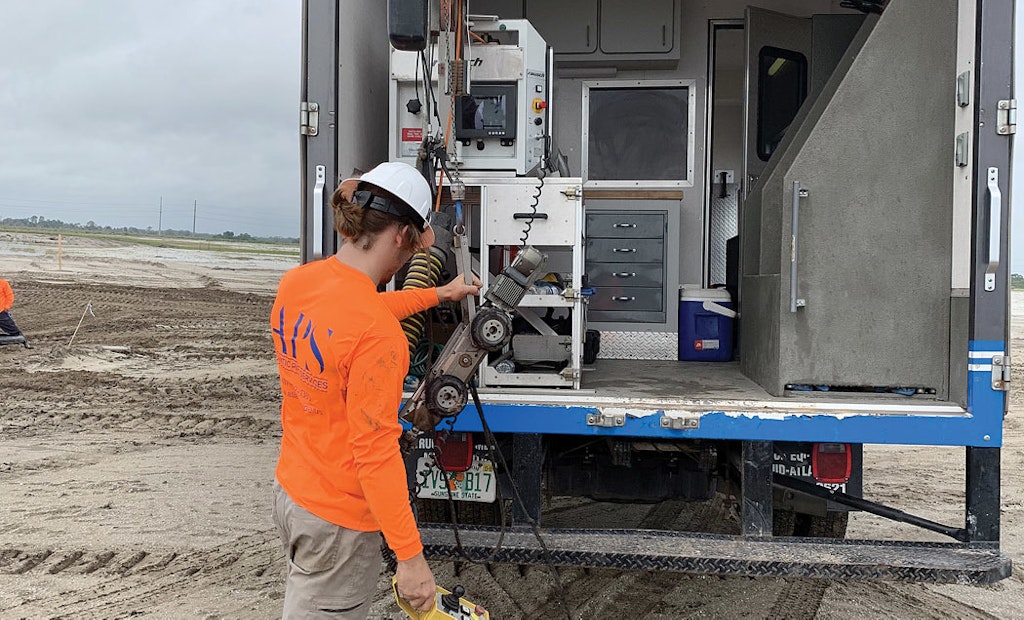
Atlantic Pipe Services technician Chad Comis uses a winch to load the Rausch M-Series KS 135 laser profiler into a camera truck on a road-construction job site in Florida.
Ever since Allan Cagle founded Atlantic Pipe Services in 2017, he’s emphasized investments in new technology that expand the company’s services. A good example is the M-Series KS 135 laser-profiling robotic camera system made by RauschUSA.
The unit reflects two of Cagle’s...





